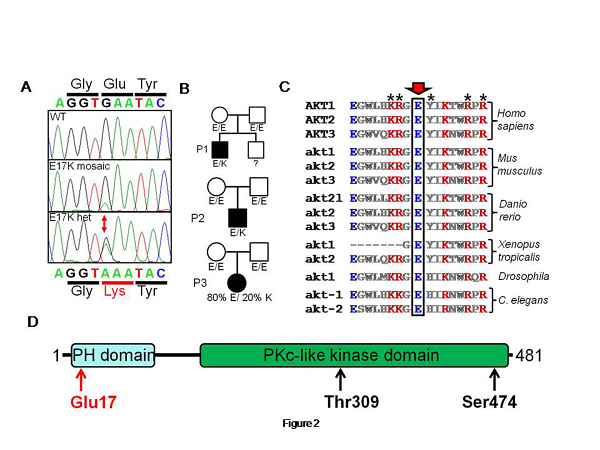Scientists identify cause of severe hypoglycaemia

Hypoglycaemia, usually characterised by too much insulin which results in too little sugar in the bloodstream, is fairly common, often affecting diabetes patients or individuals with disorders that cause insulin overproduction. Symptoms can include seizures and unconsciousness.
However, in an estimated 1 in 100,000 births a genetic defect causes a severe, life-threatening form of hypoglycaemia without detectable insulin in the bloodstream. For this rare condition, the mainstay of treatment has been implantation of a surgical feeding tube through the front of the stomach to allow feeding during sleep. This prevents patients’ blood glucose from dropping dangerously low overnight when monitoring is difficult and when symptoms often pass unnoticed.
“Fear of low blood sugar has dominated the lives of these patients and their families, and for many years the lack of an obvious cause has added to their anxiety. Offering families an explanation for a rare disease is usually of great value to them in its own right, but in this case it is particularly exciting that our findings open the door for a new and specific treatment in the future.”
Dr Robert Semple Wellcome Trust Clinician Scientist at the Institute of Metabolic Science at the University of Cambridge
For the research, scientists at the Institute of Metabolic Science and the Wellcome Trust Sanger Institute, working with clinical specialists in Cambridge, London and Paris, studied three children who suffered from this unusual form of hypoglycaemia. By examining the children’s genetic code, they were able to identify the rare genetic alteration responsible for the disorder. In all three children, but none of their parents, a single change in the AKT2 gene was identified.
AKT2 plays a critical role in transmitting insulin’s signal to the body’s tissues. The change identified in AKT2 left this signal constantly turned partly on, even during fasting when its absence is essential for liver glucose production. The study’s results not only offer an explanation to families for this severe metabolic disease, but also suggest an immediate target for new drugs.
The prospect of a new pharmaceutical treatment for this rare disorder is dramatically increased due to the fact that the AKT2 molecule is closely related to a molecule that is commonly activated in cancers (AKT1). As a result, the scientists speculate that drugs currently in development (some at the advanced clinical trial stage) that directly block activation of the cancer molecule AKT1 but also happen to block AKT2 could possibly be used to treat this rare form of hypoglycaemia.
“I went down to Great Ormond Street to see one of these patients, then a young child, about 10 years ago. It is enormously satisfying that we have finally understood the cause of his problem and very exciting that a potential therapy immediately suggests itself for this young man and others with this, probably under-recognised, condition.”
Professor Stephen O’Rahilly Co-author of the paper and Co-Director of the Institute of Metabolic Science
“Beyond the exciting prospect of offering hope for treating diseases such as these, this study is an excellent example of how recent advances in genetic approaches will transform medical diagnostics and treatments.”
Dr Inês Barroso Joint Head of Human Genetics at the Wellcome Trust Sanger Institute
More information
Funding
The work was supported by the Wellcome Trust, the Medical Research Council and the NIHR Cambridge Biomedical Research Centre.
Publications:
Selected websites
Medical Research Council
For almost 100 years the Medical Research Council has improved the health of people in the UK and around the world by supporting the highest quality science. The MRC invests in world-class scientists. It has produced 29 Nobel Prize winners and sustains a flourishing environment for internationally recognised research. The MRC focuses on making an impact and provides the financial muscle and scientific expertise behind medical breakthroughs, including one of the first antibiotics penicillin, the structure of DNA and the lethal link between smoking and cancer. Today MRC funded scientists tackle research into the major health challenges of the 21st century.
The Institute of Metabolic Science
The Institute of Metabolic Science is a joint venture between the University of Cambridge, the Medical Research Council and Cambridge University Hospitals NHS Foundation Trust. The Institute of Metabolic Science is unique in the UK, being focussed on understanding the biological basis of diabetes, obesity and metabolic disorders, all of which are major and increasing threats to public health, and on translating these scientific discoveries into improved patient care and disease prevention.
The Wellcome Trust Sanger Institute
The Wellcome Trust Sanger Institute is one of the world’s leading genome centres. Through its ability to conduct research at scale, it is able to engage in bold and long-term exploratory projects that are designed to influence and empower medical science globally. Institute research findings, generated through its own research programmes and through its leading role in international consortia, are being used to develop new diagnostics and treatments for human disease.
The Wellcome Trust
The Wellcome Trust is a global charitable foundation dedicated to achieving extraordinary improvements in human and animal health. We support the brightest minds in biomedical research and the medical humanities. Our breadth of support includes public engagement, education and the application of research to improve health. We are independent of both political and commercial interests.


